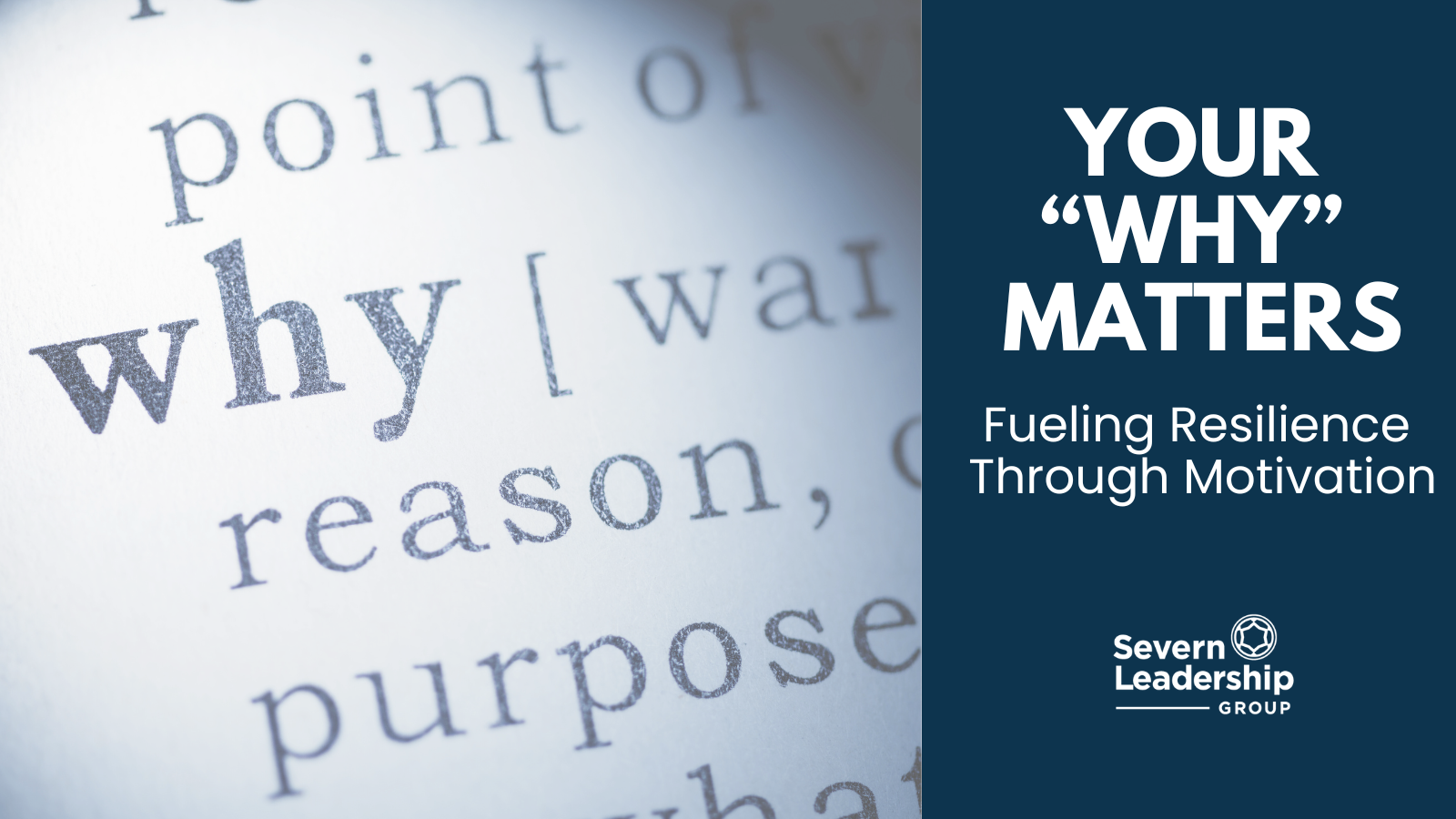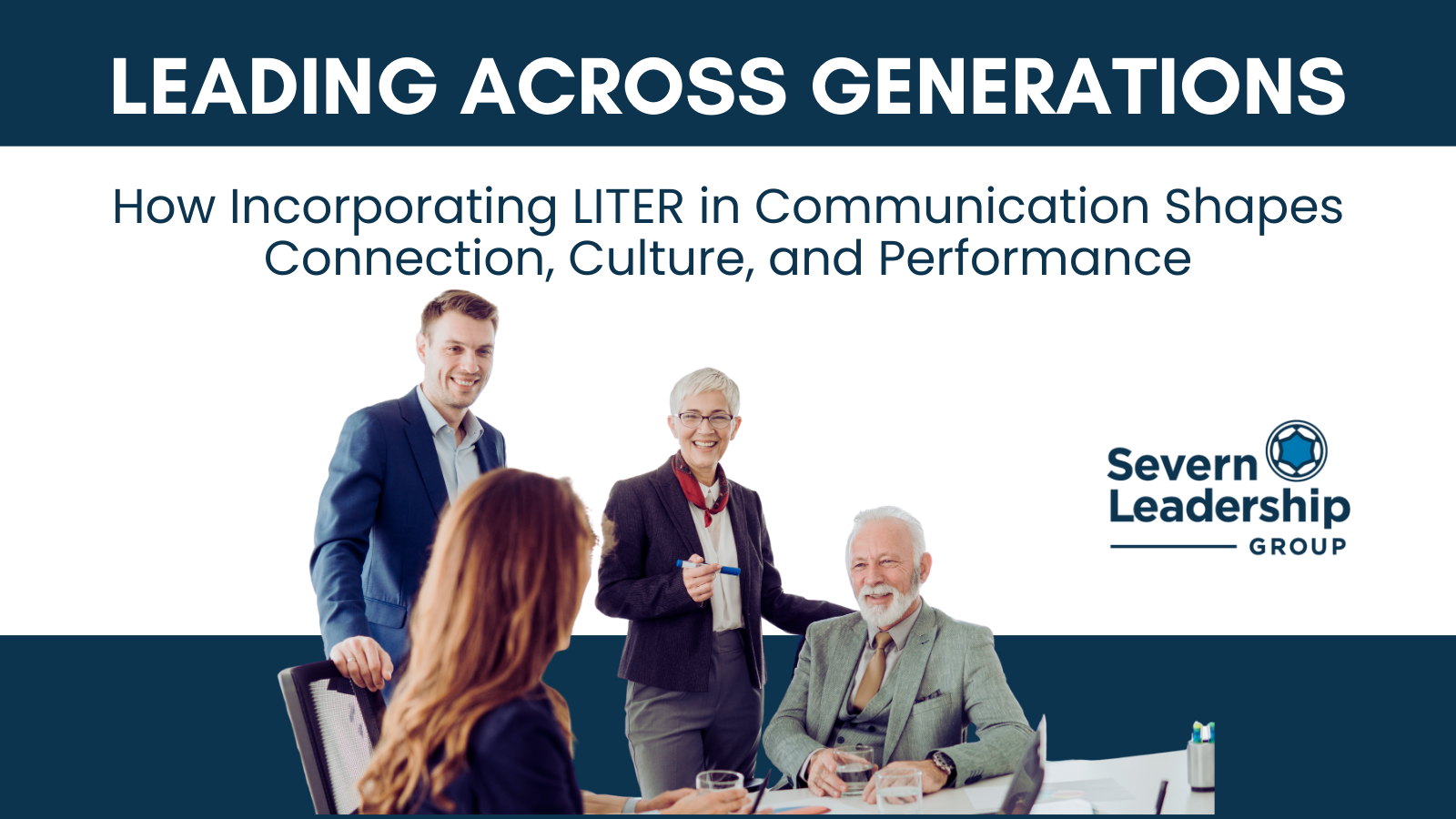From Mediocre Midshipman to Mindful Mentor: How the SLG Leadership-Followership Paradigm made me a better leader
Leaders...can maximize their impact by creating emotionally healthy, highly functioning teams.


Emotional intelligence and its impact on workplace leadership is one of the critical principles woven through the ethos of the Severn Leadership Group (SLG) and its community of learner-leaders.
Today’s working world, from start-up nonprofits and expanding business ventures to long-established organizations demand quality, talented leaders. Gone are the days when technical expertise and skills mastery were the singly prized attributes of leaders. Nowadays, healthy aspects of individuals’ “personality, emotion, cognition, and behavior” (The EQ Edge, p. 1) must be woven through each leader’s professional development and achievement.
Through its flagship Fellows Program, the Severn Leadership Group commits to matching experienced, life-long leader Mentors with rising leader Fellows for their six-month cohort designed to challenge and equip the next generation of leaders of teams. The SLG Leadership-Followership Paradigm proposes, at its core, the virtues of Love, Integrity, Truth, Excellence, and Relationships plus Courage—easily remembered by the acronym LITER+C.
Each virtue within the LITER+C acronym is a weak version of itself if examined solely through the lens of technical expertise and skills mastery. Thankfully, the emotional intelligence quotient (EQ), applied to the words within the LITER+C acronym, presents vibrant and desirable attributes for today’s leaders!
Mindful of the Managers
Theodore Roosevelt said, “People don’t care how much you know, until they know how much you care.” And he was right.
We’ve all worked with know-it-alls who regularly reminded us of their pedigree and advanced degree(s). Within teams, these know-it-alls can quickly and negatively impact the working environment, thus hindering the achievement of the organization’s mission.
Leaders who view their role as one who relationally both leads and follows, can maximize their impact by creating emotionally healthy, highly functioning teams. As SLG founder and visionary Sigval Berg shares in Swing: Elite Leadership for High Performance Teams, leaders must understand their simultaneous roles as leaders and as followers. Foundationally, every leader must learn to be a follower—and must continue to practice followership as leadership opportunities increase.
“Followership provides the opportunity for core virtues to be shaped, technical abilities to become proficient, work habits developed, giving and receiving feedback learned, and teamwork realized.” (Swing, p. 33)
The leader-follower headed toward more outstanding achievement begins to realize that “it’s at least as important to be emotionally and socially intelligent as it is to be cognitively or analytically intelligent” (The EQ Edge, p. 13). Followers are constantly being challenged in their technical development, which exposes aspects of their personal relational skills that may need adjustment.
As a member of a team and in life, followers are responsible for supporting their leaders while increasing their technical competence. Every follower will, by intention or by default, develop habits in the exercise of LITER+C.
A Mediocre Midshipman
When I reported to the U.S. Naval Academy on July 2, 1985, I was abruptly yanked from leadership within my high school into a place of strenuous followership as a first-year midshipman. The Love I experienced that year was of a “tough love” nature that involved lots of screaming in an attempt at motivational change. As I moved through four years of followership training at the Naval Academy, my Love practice was shaped by those in authority over me. I developed a “large and in charge” persona that often served me well in challenging military situations.
Military life reinforced my coping mechanisms in stressful situations with mounting pressure. I viewed pressure and competition as a challenge to be met and overcome efficiently and effectively. But I wasn’t a loving leader, nor was I a loving follower.
To become an emotionally healthy leader and follower, I had to do some hard work. I needed to have the Integrity to ask myself hard questions. I had to face the Truth that I regularly steamrolled others to accomplish the mission. What I thought was Excellence was often hubris, and my Relationships were littered with brokenness.
Maturation Through Mentorship
Thankfully, I had people in my life who encouraged me to use Courage to undergird a change in direction. Such men and women were leaders who were:
“…able to see beyond the horizon, to challenge and shape outcomes while encouraging, teaching, and caring for those he or she leads.” (Swing, p. 32)
I shifted from using the “tough love” hammer to a more nuanced expression of love where I listen more than speaking (and with a lot less screaming). Step by slow, small step, I asked hard questions and then journeyed down difficult and often embarrassing paths to places where I needed to ask for forgiveness. I had to sit and listen to stories of how I had wounded others—all while disciplining my thoughts to receive painful feedback rather than to script a defense or justification. And sometimes the damage I did was permanent, and my efforts at making changes were disappointing.
In 2021, as an SLG Mentor, I received the results of my EQ-i 2.0 Workplace Report and saw that my personal and professional Stress Tolerance remains very high and my low score in Empathy continues to be a weakness to address.
Modifying the Mercurial
Today, thirty-six years after my rude introduction to military life, I lead from a place of calm and focus, able to remain composed while paying attention to the relational equilibrium within teams. Less and less do I come across as cold and unempathetic.
As I become better at noticing emotional changes within myself, I have become better at detecting emotional changes expressed by my teammates. When we embrace emotional well-being as we work through the functional aspects of challenging work, our teams experience more satisfying workplace success.
“[E]motional intelligence has been defined as “a set of emotional and social skills that influence the way we perceive and express ourselves, develop and maintain social relationships, cope with challenges, and use emotional information in an effective and meaningful way.” (The EQ Edge, p. 13)
Now, I use laughter and self-deprecating humor to relieve stress. I smooth out my furrowed brow when I feel myself frown intensely. From a place of curiosity, I ask better, detailed questions—and I presume that I have only part of the answer at best. And I’ve learned to regularly say please, sorry, and thank you in a timely and specific manner.
Multiplying the Model
Facing and then embracing the LITER+C virtues and using the tools of emotional well-being gives our leader-learners the tools needed to encourage and develop team members within the organization. Since our competency cannot extend beyond our character, we must embrace the principles of the SLG and the inter-relationship between the leader’s influence and the follower’s purpose.
May each of us be agents of transformational change as we work to become better followers and leaders, building better teams and organizations through virtuous leadership.

Kristin Goodrich (known as “KG”) serves as the Deputy Director for Planting Roots, a non-profit organization seeking to encourage women in the military community to be deeply rooted in their faith. In addition to speaking, training, and writing, KG develops strategies and processes to sustain healthy growth with the teams at Planting Roots. For nearly forty years, she has lived and worked within the military community. She is a 1989 graduate of the U.S. Naval Academy, has been married to her Air Force husband for 30 years, and is mom to three thriving young adults. Her work in Christian and military non-profits has shaped her leadership style, and she is grateful for the deep, abiding connections she has throughout the military community.




